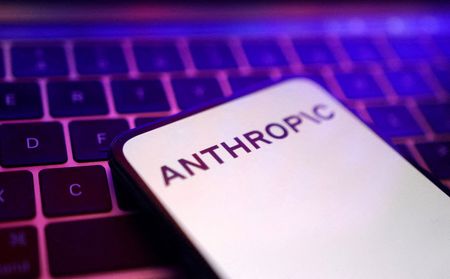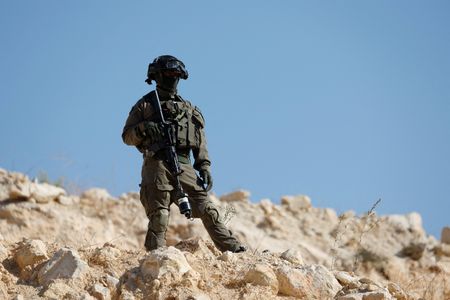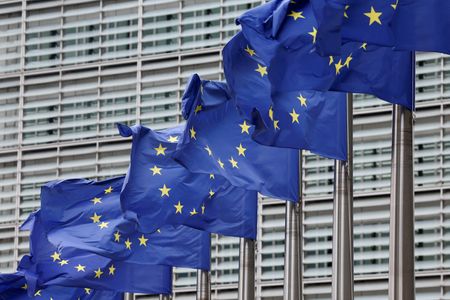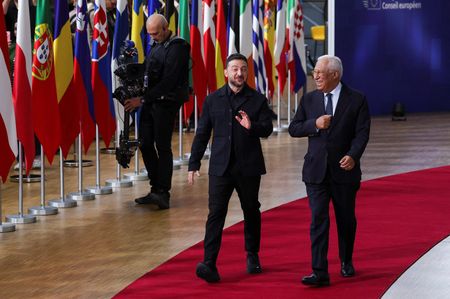By Julia Payne
BRUSSELS (Reuters) -The European Union adopted its 19th package of Russia sanctions on Thursday, banning Russian liquefied natural gas imports and targeting entities ranging from Chinese refiners and Central Asian banks to a Russian prison medic.
The overall package would make it increasingly hard for Russian President Vladimir Putin to fund his invasion of Ukraine, EU foreign policy chief Kaja Kallas said in a post on X.
“It targets Russian banks, crypto exchanges, entities in India and China, among others … The EU is curbing Russian diplomats’ movements to counter the attempts of destabilisation,” she added.
The 27 member states approved the package on Wednesday evening after Slovakia dropped its block.
The LNG ban will take effect in two stages: short-term contracts will end after six months and long-term contracts from January 1, 2027. The full ban comes a year earlier than the Commission’s proposed roadmap to end the bloc’s reliance on Russian fossil fuels.
The ban does not apply to pipeline gas and crude oil.
Other measures include a new mechanism to limit the movement of Russian diplomats within the EU, access to EU space-based and AI services, and a ban on transactions with Russian oil producers Rosneft and Gazpromneft.
The package also introduces investment bans in Russian economic zones and new criteria which will allow the EU to list ports in third countries in future sanctions packages.
ENTITIES AND INDIVIDUALS
The package adds 117 more shadow fleet vessels, false flag companies providing registration for Russia’s tankers, and five banks in Kyrgyzstan and Tajikistan.
Another 11 people were added to its list of individuals and entities involved in trafficking Ukrainian children, bringing the total to 102. The listing criteria has also been expanded to hit more targets involved in this business.
The EU’s Official Journal also listed a Russian academic running a sanctions circumvention course and a medic at a penal colony in Mordovia. Prisoners there had reported “inhumane and degrading treatment,” the journal said.
(Reporting by Kate Abnett, Alessandro Parodi and Julia Payne, editing by Bart Meijer and Andrew Heavens)








